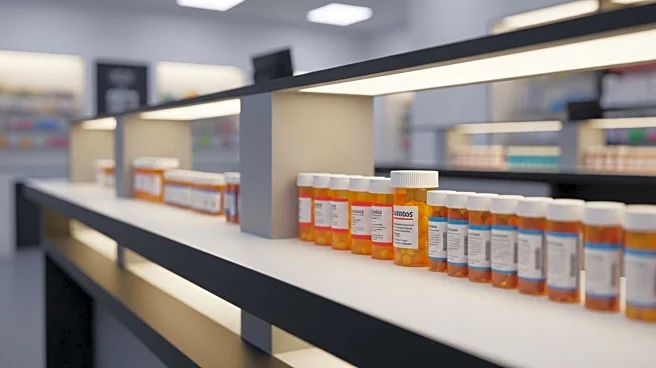What is the story about?
What's Happening?
Employers in the United States are facing increasing challenges in managing the rising costs of pharmacy benefits, driven by factors such as high demand, supply chain dynamics, and policy-related influences. According to a report by consulting firm Segal, drug prices have risen significantly, outpacing overall inflation. The report highlights the impact of specialty drugs, particularly GLP-1 drugs, which are used for glycemic control and weight management, on pharmacy costs. Employers are adopting various strategies to control these costs without compromising care quality. These strategies include offering less expensive biosimilar and generic drugs, implementing diabetes and GLP-1 management strategies, optimizing site-of-care, and adopting custom drug formularies.
Why It's Important?
The rising cost of pharmacy benefits is a significant concern for employers as it affects their ability to provide competitive health benefits. The increase in drug prices, particularly for specialty drugs, poses a financial burden on both employers and employees. By implementing cost-control strategies, employers can mitigate these expenses, ensuring continued access to necessary medications for their workforce. This is crucial for maintaining employee health and productivity, as well as for managing overall healthcare costs. The strategies also reflect a broader trend in the healthcare industry towards more efficient and cost-effective management of pharmaceutical expenses.















